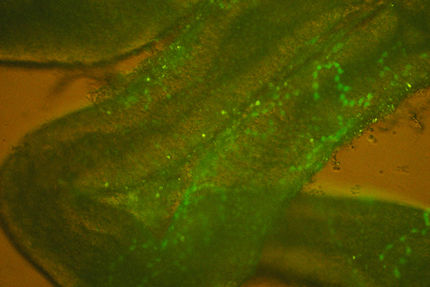Cancer conundrum cracked
Advertisement
Cancer researchers at the University of Dundee have just turned a common cancer belief on its head saying that a group of proteins previously believed to cause cancer can also be used in the fight against cancer.
Dr. Neil Perkins and his team in the School of Life Sciences have identified that NF-kappaB a group of proteins present in every cell in the human body can actually assist some cancer therapies such as chemo and radio therapy. They believe that this discovery will allow clinicians to predict more accurately how tumours will respond to cancer therapy improving treatment for cancer patients.
Neil explains: "The group of proteins NF-kappaB are like a number in a combination lock. Sometimes they are present in the combination which turns on genes and causes cancer but now we know that they can also be found in the combination which switches off the genes, preventing cancer".
This discovery was made in a laboratory with cell culture. Neil and his team now hope to establish that what they have found in the lab is also the case in the human body. They now need to generate the tools that will allow them to see if this is occurring in real tumours.
An important question to answer before cancer treatment can start is how will the tumour respond to therapy? This needs to be predicted so that the correct amount and type of treatment can be given to the patient. Neil and his team believe that their new discovery will allow them to predict more accurately patient responses to therapy.
Neil continues: "If we could now find drugs that more specifically mimic the effects on NF-kappaB that we are seeing they would also have good potential as anti cancer drugs."
Organizations
Other news from the department science

Get the life science industry in your inbox
By submitting this form you agree that LUMITOS AG will send you the newsletter(s) selected above by email. Your data will not be passed on to third parties. Your data will be stored and processed in accordance with our data protection regulations. LUMITOS may contact you by email for the purpose of advertising or market and opinion surveys. You can revoke your consent at any time without giving reasons to LUMITOS AG, Ernst-Augustin-Str. 2, 12489 Berlin, Germany or by e-mail at revoke@lumitos.com with effect for the future. In addition, each email contains a link to unsubscribe from the corresponding newsletter.


























































